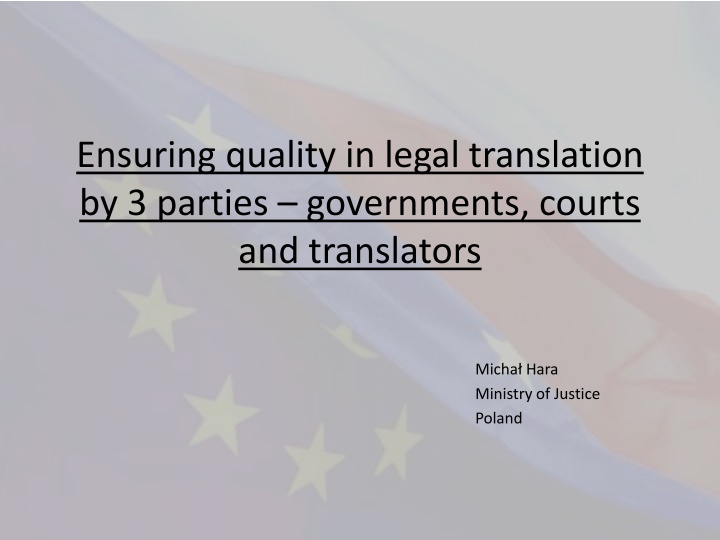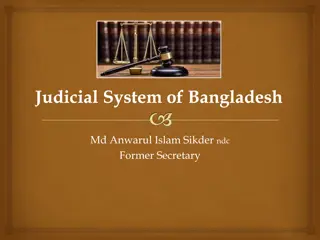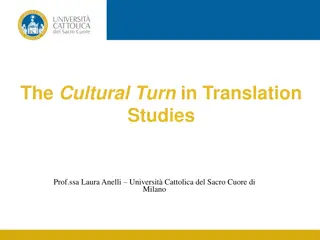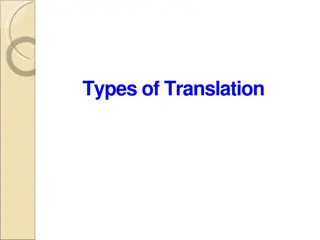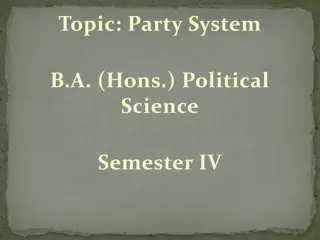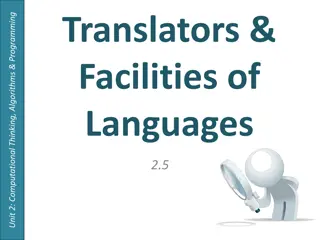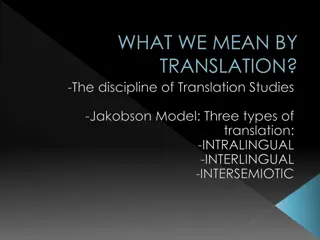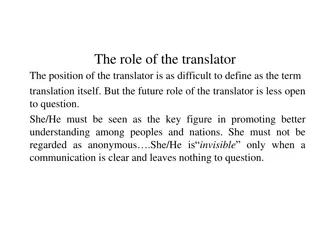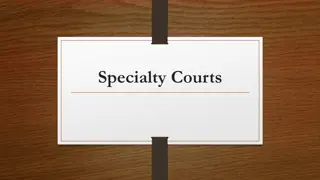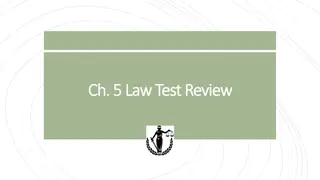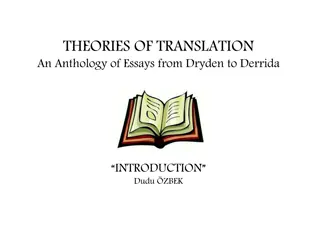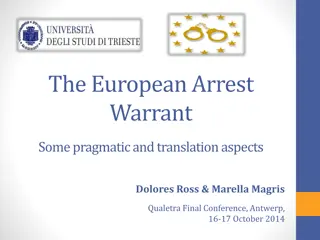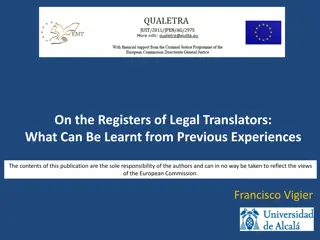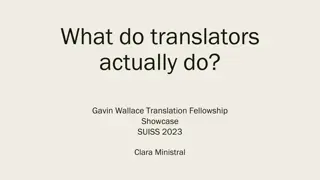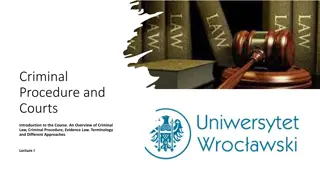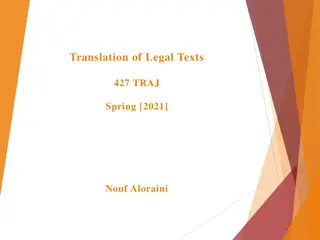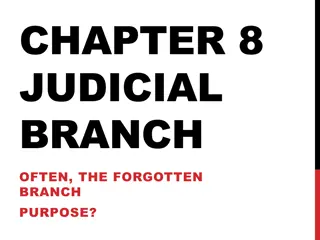Ensuring Quality in Legal Translation by 3 Parties: Governments, Courts, and Translators
Explore the importance of quality legal translation involving governments, courts, and translators in criminal proceedings. The European Union's Directive on interpretation and translation aims to facilitate communication across Member States. Governments play a key role in regulating the translation profession, ensuring qualifications, rights, and obligations. Courts oversee the impartiality of translators, prohibiting bias. Translators must adhere to defined laws and rates, balancing commercial attractiveness with the need for qualified professionals.
Download Presentation

Please find below an Image/Link to download the presentation.
The content on the website is provided AS IS for your information and personal use only. It may not be sold, licensed, or shared on other websites without obtaining consent from the author.If you encounter any issues during the download, it is possible that the publisher has removed the file from their server.
You are allowed to download the files provided on this website for personal or commercial use, subject to the condition that they are used lawfully. All files are the property of their respective owners.
The content on the website is provided AS IS for your information and personal use only. It may not be sold, licensed, or shared on other websites without obtaining consent from the author.
E N D
Presentation Transcript
Ensuring quality in legal translation by 3 parties governments, courts and translators Micha Hara Ministry of Justice Poland
Background - the European level European Union: 28 Member States, over 500,000,000 people and 24 official languages. Member States require tools to communicate with persons who do not speak the language of proceedings hence the need for translators. Directive 2010/64/EU on the right to interpretation and translation in criminal proceedings Articles 2(8), 3(9) and 5.
The 3 perspectives Governments meaning the entirety of a State s governing bodies, including the legislative and any state-dependent bodies that can affect the law-making process. Courts meaning courts themselves and any other bodies whose task is to conduct or oversee any part of criminal proceedings, including the Police and Public Prosecutors. Translators .
1. Governments Legal framework for providing translation in criminal proceedings. Regulated profession. Rights and obligations of translators. Translation rates.
Regulated profession Pro Ability to control the qualifications of persons providing translation. Easier enforcement of obligations (disciplinary responsibility). Strong self-governance possible.
Regulated profession Pro Ability to control the qualifications of persons providing translation. Easier enforcement of obligations (disciplinary responsibility). Strong self-governance possible. Con Inability to quickly appoint a translator from a rare language. Greater governmental control.
Rights and obligations Rights and obligations clearly defined in national law. Right to review the case file. Impartiality, i.e. translators should be prohibited from taking sides in the proceedings.
Rights and obligations, rates Rights and obligations clearly defined in national law. Right to review the case file. Impartiality, i.e. translators should be prohibited from taking sides in the proceedings. Rates for translation should be as commercially attractive as is feasible for the state. Too low rates will discourage highly qualified professionals.
2. Courts Effective cooperation between court and translator can greatly contribute to the quality of the text. Sufficient time for translation. Specialisation. Quality assessment. Consistency. Essential documents .
Sufficient time Various quality of court documents (e.g. photocopies, handwritten texts). Different levels of complexity (witness statements, indictments, expert opinions, specialised datasheets). Strict deadlines can be an enemy of good translation.
Specialisation Courts should be able to appoint specialists in criminal law and relevant vocabulary. Registers of translator specialities operated by: Courts? The state? Translator associations?
Quality assessment Quality assessment should not be handled by courts alone. Often different translations can be equally valid. Courts do require tools to intervene if they deem the quality of translation to be insufficient. Appointment of a new translator.
Consistency Ideally a single case should be handled by a single translator. Different reasons for change of translator: imperative obligations, illness, personal reasons, replacement by court.
Essential documents Essential documents examples listed in Article 3(2) of Directive 2010/64/EU What other documents should be considered essential is decided by the court. Exercise flexibility in different cases different documents may turn out to be essential .
3. Translators Language and law. Specialisation. Professional ethics (professional secrecy). Personal traits.
Language and law Expert knowledge of both native language and chosen language. Good knowledge of criminal law, substantive and procedural, as well as law in general. Useful to know the law of states using chosen language. Professional development self study, courses, training.
Specialisation Particular expertise in a given field of criminal law (e.g. medicrime, military crime, banking, money laundering, transport, etc.). Specialisation can be particularly effectively implemented by translator firms and associations. Specialisation does not mean complete exclusion of other fields.
Professional ethics Professional secrecy. Secrecy required to safeguard procedural rights of persons involved in proceedings.
Professional ethics, personal traits Professional secrecy. Secrecy required to safeguard procedural rights of persons involved in proceedings. Documents in criminal cases can pertain to disturbing and unsettling events. Court work can be stressful.
Conclusions The perspectives of the 3 parties, Governments, Courts and Translators, overlap and interweave. All 3 parties must cooperate and listen to each other in order to guarantee high quality of translation in criminal proceedings. None of the 3 parties can achieve it alone!
